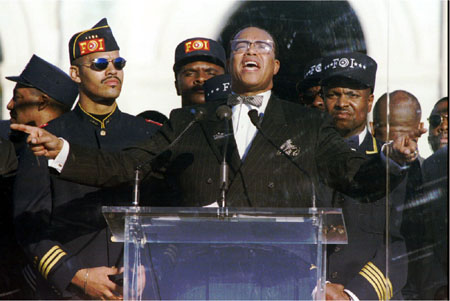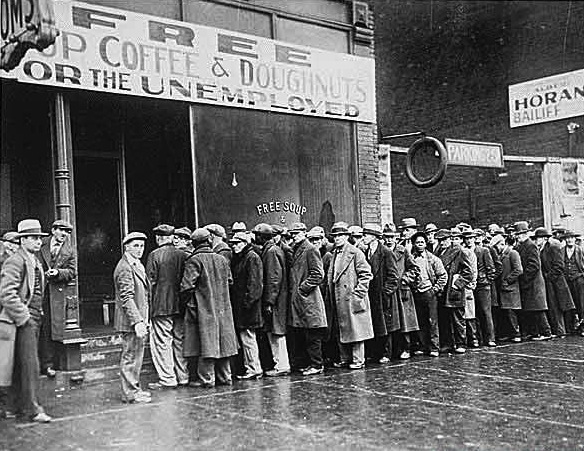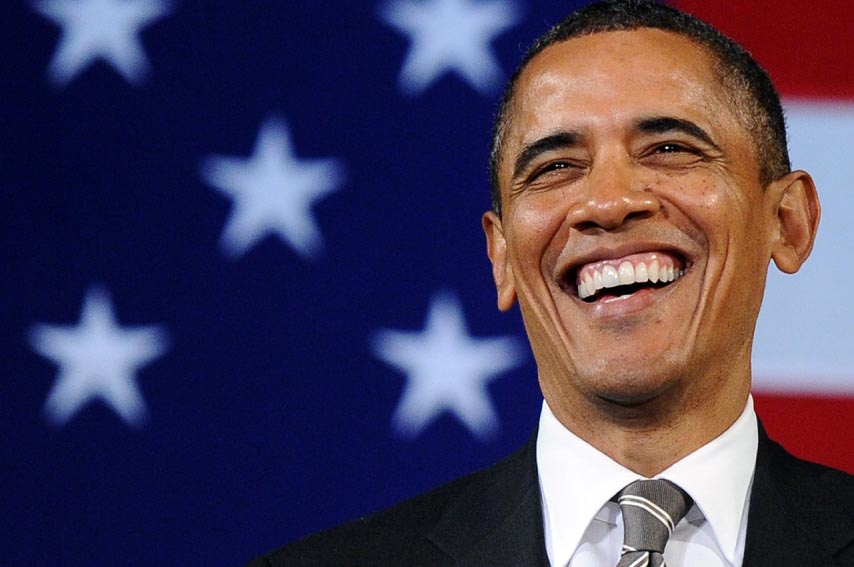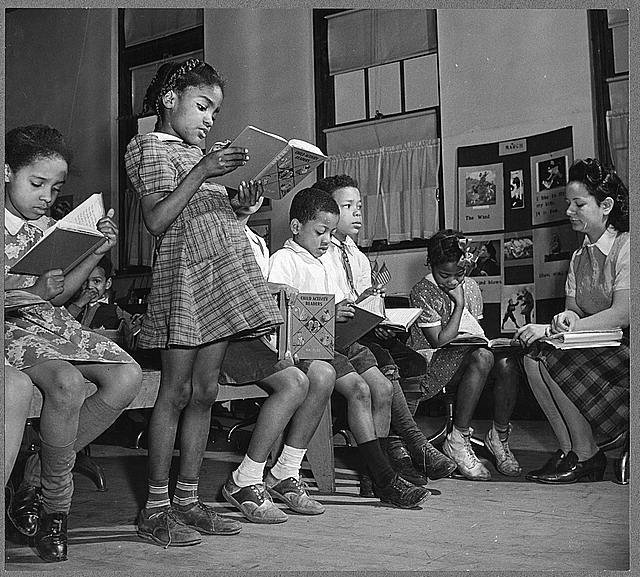1941
United States enters World War II; President Roosevelt prohibits racial discrimination within the defense industry
1944
African American pastor and statesman Adam Clayton Powell begins an 11-term career in the U.S. House of Representatives
Jazz trumpeter Dizzy Gillespie begins a stint at the Onyx Club in New York City, where he pioneers the style of bebop jazz
1945
Ebony magazine is founded
1947
Jackie Robinson signs with the Brooklyn Dodgers, becoming the first Africa American to play for a major league baseball team
1950
African American diplomat Ralph Bunche wins the Nobel Peace Prize for his work as a U.N. mediator during the Arab-Israeli crisis in the Middle East
1952
First year since colonial times in which no lynchings are reported in the United States
1954
U. S. Supreme Court’s Brown v. Board of Education verdict bans racial segregation in public schools and other public facilities
1955
Under the direction of Rev. Martin Luther King Jr., black citizens of Montgomery, Alabama, stage a bus boycott when commuter Rosa Parks is jailed for refusing to give up her seat to a white person on a crowded bus
1957
President Dwight D. Eisenhower orders 1,000 federal troops to enforce public school desegregation in Little Rock, Arkansas
1958
CBS airs Mike Wallace and Louis Lomax’s five-part documentary The Hate That Hate Produced, which gives the Nation of Islam and its spokesperson, Malcolm X, national exposure
1960
Student Nonviolent Coordinating Committee (SNCC) is founded to coordinate youth-directed civil rights efforts in the South
1961
President Kennedy calls for an affirmative action program to establish equity in awarding government-backed contracts
1963
Police forces in Birmingham, Alabama, use high-powered hoses and dogs on peaceful civil rights marchers led by Martin Luther King Jr.; the event draws sympathy and support in the North for the civil rights cause
Black civil rights activist and NAACP field secretary Medgar Evers is murdered at his home in Mississippi
Martin Luther King Jr. gives his famous “I have a dream” speech before a crowd of more than 200,000 civil-rights protesters in the nonviolent March on Washington
White supremacists bomb the Sixteenth Baptist Church in Birmingham, Alabama, killing four young girls
1964
Congress passes the Civil Rights Act, which establishes the Equal EmploymentOpportunity Commission and ratifies the Economic Opportunity Act, enabling blacks to benefit from Head Start and Upward Bound programs
Martin Luther King Jr. receives the Nobel Peace Prize for his civil rights efforts
1965
Clashes between African American residents and police in south-central Los Angeles ignite the catastrophic Watts Riots, the largest race-related disturbance in U.S. history
Nation of Islam leader Malcolm X is assassinated while delivering a speech at the Audubon Ballroom in Harlem, New York
1966
Huey P. Newton and Bobby Seale found the Black Panther Party in Oakland, California; the organization offers numerous community aid programs and services to African Americans
The Student Nonviolent Coordinating Committee (SNCC) and the Congress of Racial Equality (CORE) espouse the concept of Black Power, which is articulated by Stokely Carmichael and other leaders
African American studies professor Maulana Karenga creates the holiday Kwanzaa, modeled after a traditional African harvest festival, to celebrate traditional African values in the United States; celebration of the holiday has since spread to other countries
1967
Senate confirms Thurgood Marshall as the first black justice ever to serve on the U.S. Supreme Court
1968
Martin Luther King Jr. is assassinated while standing on the terrace of his hotel room in Memphis, Tennessee
1969
James Earl Ray is convicted of the murder of Martin Luther King Jr. and receives a 99-year prison sentence
Credit: sparknotes











